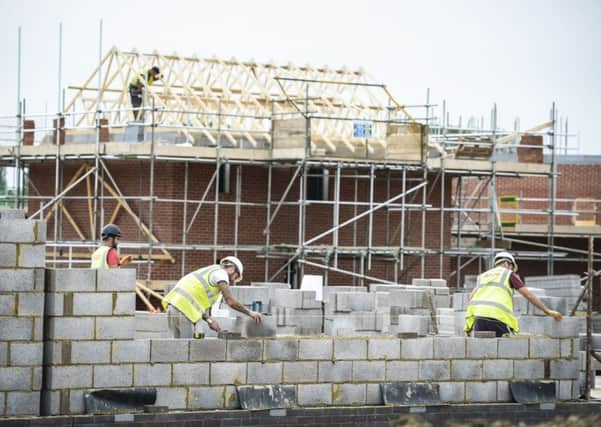Martin Flanagan: Construction data disappoints


On the one hand, construction activity grew for the fifth successive month in January, but on the other hand growth slowed appreciably to a four-month low.
Even more disappointing, the industry’s expansion slowed in all three sub-sectors in January – housebuilding, offices and factories, and civil engineering, according to the latest Markit/Cips construction purchasing managers index (PMI).
Advertisement
Hide AdAdvertisement
Hide AdCapping the more cheerless picture for the New Year, the survey said construction firms facethe largest surge in costs since 2008 as a result of the significant fall in the pound’s value since that Brexit referendum, and that new orders growth is at its weakest since last September.
It is the latest evidence that construction suppliers are having no compunction in passing on higher prices for commodities and imported construction materials.
The PMI index for January came in at 52.2 – down from 54.2 in December, and where any figure above 50 denotes growth. Somewhat surprisingly, given that there seems little likelihood of the weaker pound and more subdued backdrop generally evaporating in the coming months, the January survey reported that sentiment in the building sector remains buoyant, with confidence for the year ahead at its highest in more than 12 months. That has helped more positive moves in staff recruitment at the start of 2017.
Rates decision becomes tougher
To nobody’s surprise, the Bank of England (BoE) left base rates at historic lows yesterday. However, inflationary pressures are going to make it a much closer call as 2017 progresses and the Bank has to balance supporting growth with keeping within the government’s 2 per cent inflation target.
Throw in the uncertainties of Brexit and the triggering of Article 50 and you can see why some analysts are saying that the monetary policy committee may soon be walking a tightrope on rates.
The Bank upgraded forecasts for UK economic growth to 2 per cent this year, 1.6 per cent next year, and 1.7 per cent in 2019. It has clearly taken on board the more resilient than expected performance of the economy overall since the Brexit vote.
